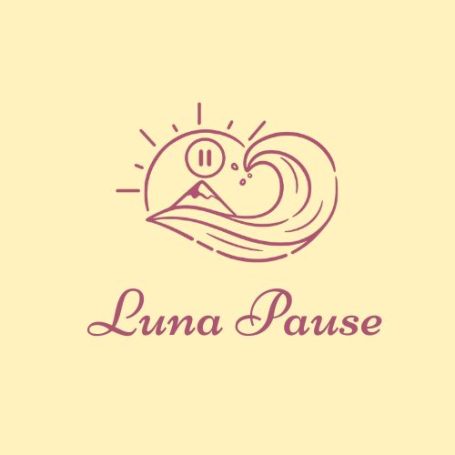Perimenopause and Menopause 101
The Myths, the Facts and tips about Perimenopause and Menopause and how to deal with the symptoms
Let's Demystify things
🔍 Mysteries of Perimenopause and Menopause
1. It Doesn’t Start When You Think It Does
Mystery: Many believe menopause starts suddenly in your 50s.
Reality: Perimenopause—the lead-up—can begin as early as your late 30s or early 40s, often with subtle symptoms that are misdiagnosed or dismissed.
2. Hormones Don’t Just “Drop”—They Fluctuate Wildly
Mystery: Menopause is thought to be a steady decline in hormones.
Reality: During perimenopause, oestrogen and progesterone levels spike and crash unpredictably, which causes intense mood swings, anxiety, and hot flushes.
3. It Affects More Than Just Your Periods
Mystery: Menopause is just about your periods stopping.
Reality: It impacts the entire body and brain — including sleep, memory, skin, libido, digestion, joint health, and emotional regulation.
4. Mental Health Is Deeply Affected
Mystery: Emotional symptoms are often written off as “just stress.”
Reality: Hormonal changes can trigger anxiety, depression, brain fog, rage, and even panic attacks. Many women are prescribed antidepressants without checking hormone levels first.
5. You Can Still Get Pregnant in Perimenopause
Mystery: Fertility is assumed to be gone once symptoms start.
Reality: Ovulation is irregular but still possible in perimenopause. You can still conceive until 12 consecutive months without a period (the medical marker of menopause).
6. Hot Flushes Aren’t Just About Feeling Hot
Mystery: They’re just mild discomfort.
Reality: Hot flushes can be sudden, intense, and socially distressing, often accompanied by dizziness, sweating, nausea, and palpitations.
7. Bone and Heart Health Are on the Line
Mystery: Menopause is about managing symptoms.
Reality: Lower oestrogen levels increase the risk of osteoporosis and cardiovascular disease. Menopause is a critical time to re-evaluate diet, exercise, and lifestyle.
8. It’s Not the Same for Everyone
Mystery: Everyone goes through it the same way.
Reality: Genetics, stress, ethnicity, medical history, and trauma can all affect how someone experiences menopause. Some breeze through it, others struggle deeply.
9. There Are Treatments—You Don’t Have to Suffer
Mystery: “It’s natural, just get through it.”
Reality: There are evidence-based treatments including HRT (Hormone Replacement Therapy), cognitive behavioural therapy, lifestyle changes, and alternative supports. Advocacy and knowledge are key.
10. There’s Still a Cultural Silence
Mystery: We’re all talking about it now.
Reality: Despite progress, menopause is still underfunded, under-researched, and under-discussed, especially in workplace and healthcare settings.
Talking openly about perimenopause and menopause is central to Luna Pause because we believe every woman deserves knowledge, support, and empowerment during one of the most transformative—and often overlooked—phases of her life.
Let's Demystify more things
🔍 Mysteries & Facts: Medically Induced Perimenopause & Menopause
🧩 Mystery 1: “It’s the same as natural menopause.”
🩺 Fact: Medically induced menopause (from surgery, chemotherapy, or medication) is not the same.
Natural menopause is gradual, while medical menopause is sudden—often with little time to prepare.
The hormonal drop is more extreme, which can make symptoms more intense and harder to manage.
🧩 Mystery 2: “You won’t have symptoms if you’re young.”
🩺 Fact: Age doesn’t protect you.
Induced menopause can happen at any age due to cancer treatment, endometriosis, PCOS management, or risk-reduction surgeries (e.g. oophorectomy).
Many younger women experience severe symptoms, especially emotionally, because they’re not “expected” to go through menopause.
🧩 Mystery 3: “You’ll bounce back after treatment ends.”
🩺 Fact: Hormonal shutdown has long-term effects.
For many, menopause doesn’t end when treatment does.
Induced menopause can lead to permanent infertility, loss of libido, vaginal atrophy, depression, and chronic fatigue if not well-managed.
🧩 Mystery 4: “There are no treatment options if it’s medically induced.”
🩺 Fact: There are options—though they require expert guidance.
HRT may be an option, but needs to be assessed case-by-case (e.g., not always suitable after hormone-sensitive cancers).
Non-hormonal treatments and complementary therapies can also help manage symptoms.
You may need a menopause specialist, not just a GP.
🧩 Mystery 5: “It only affects your body, not your identity.”
🩺 Fact: Induced menopause can trigger profound emotional and identity loss.
For younger people especially, it can feel like an early ageing or loss of womanhood or fertility.
It may be accompanied by grief, anxiety, body image issues, or even PTSD following surgery or cancer.
🧩 Mystery 6: “Once the physical symptoms are managed, you’re fine.”
🩺 Fact: Mental and social wellbeing often lag behind.
People experiencing induced menopause may feel isolated, especially if no one else their age relates.
Support groups, counselling, and inclusive community spaces like Better Together and Luna Pause can make a huge difference.
🧩 Mystery 7: “It’s rare.”
🩺 Fact: It’s more common than you think.
Thousands go through medically induced menopause every year due to:
Endometriosis or fibroid treatment
Breast or ovarian cancer
Surgical menopause (hysterectomy with oophorectomy)
Hormone blockers for gender-affirming care
💡 Final Truth:
Induced menopause is real, valid, and deserves recognition. It’s not “less than” natural menopause—just different. With informed care, compassionate community, and access to the right support, recovery and resilience are absolutely possible.
"At Luna Pause, we believe every menopause journey—especially those triggered by medical treatment—deserves compassion, clarity, and community."
Let's Demystify even more things
🔍 Mysteries & Facts: Neurodiversity and Perimenopause & Menopause
🧠 Mystery #1: Why do symptoms often intensify for neurodivergent women?
Many report that ADHD symptoms like forgetfulness, impulsivity, and emotional sensitivity get worse.
Autistic individuals may notice a reduced tolerance for sensory input or a drop in executive functioning.
Research is scarce—but hormonal fluctuations likely interact with existing neurocognitive differences.
✅ Fact: Estrogen plays a major role in regulating dopamine—key for attention and mood regulation. Its decline may uniquely impact neurodivergent brains.
🌀 Mystery #2: Why is diagnosis harder during midlife?
Symptoms of perimenopause (e.g., brain fog, mood swings, anxiety) often mimic or mask neurodivergent traits.
Many people assigned female at birth are diagnosed with ADHD or autism for the first time during midlife.
✅ Fact: A rising number of women are diagnosed with ADHD or autism during perimenopause—highlighting how hormonal shifts reveal previously unrecognized neurodivergence.
🌡️ Mystery #3: How should treatment adapt for neurodivergent people?
HRT (Hormone Replacement Therapy) helps some—but not all.
Stimulant meds for ADHD may need dose adjustments.
Sensory issues may make certain therapies (like patches) intolerable.
✅ Fact: There’s no one-size-fits-all. Support needs to be individualized, considering both hormonal and neurological needs.
💬 Voices from the Community
“I thought I was losing my mind—turns out I was perimenopausal and autistic.”
“My ADHD got so much worse in my 40s. Once I started HRT and adjusted my meds, I felt human again.”
🌙 Takeaway
If you’re neurodivergent and navigating menopause, you’re not alone. It’s time we remove the shame, break the silence, and demand better research and support.
Why This Topic Matters:
Neurodivergent individuals (e.g., ADHD, autism, dyslexia) often experience perimenopause and menopause differently—and these experiences are under-researched and misunderstood. Let’s explore what we know and what remains mysterious.



